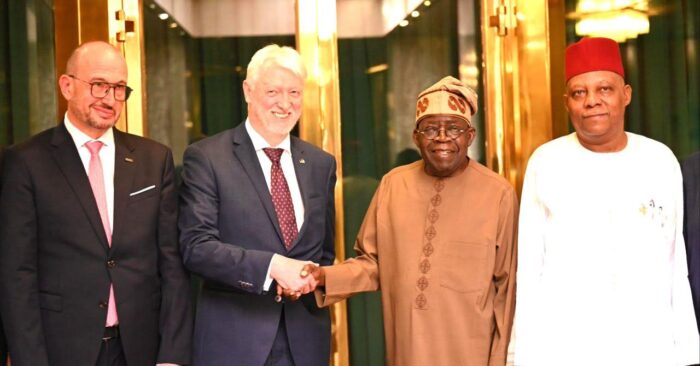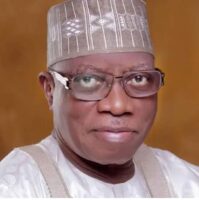President Bola Tinubu on Monday reaffirmed his administration’s commitment to improving Nigeria’s electricity supply through the ongoing Presidential Power Initiative (PPI) being executed in partnership with Siemens Energy.
Speaking during a meeting with a Siemens Energy delegation led by Dietmar Siersdorfer, Managing Director for the Middle East and Africa, at the State House, Abuja, Tinubu said the government remains determined to deliver reliable power to drive industrial growth and improve citizens’ quality of life.
The President emphasised that a stable power sector is vital to the nation’s economic recovery, with significant implications for industrial, educational, and healthcare development.
“There is no industrial growth or economic development without power. I believe that power is the most significant discovery of humanity in the last 1,000 years,” Tinubu said.
“We appreciate the partnership on this initiative. The progress so far is notable, but we know there is still more to be done.”
Tinubu commended Siemens Energy and the German government for their support, assuring that Nigeria would continue to provide the necessary resources for the completion of the project. He also directed the expansion of major transformer substations from two to three phases to boost electricity capacity nationwide.
“We are all inspired and happy. This is what we want to achieve on the continent—to show the glory of our economic recovery and the banishment of poverty,” the President added.
This was contained in a statement by Bayo Onanuga, the Special Adviser to the President on Information and Strategy, on Monday, November 10.
Vice President Kashim Shettima, Minister of Power Adebayo Adelabu, Minister of Finance and Coordinating Minister of the Economy Wale Edun, and Special Adviser on Energy Olu Verheijen were in attendance.
In his remarks, the Power Minister said the sector had recorded several critical milestones, including decentralisation, liberalisation, and the signing of the Electricity Act 2023, which has attracted more than $2.2 billion in new investments.
Read Also
READ ALSO: JUST IN: Nigeria Electricity Grid Connected To West Africa Power Pool
Adelabu noted that the implementation of the PPI had already strengthened grid stability and reliability across the country.
He revealed that under the pilot phase, Siemens Energy delivered and commissioned 10 units of 132/33kV mobile substations, three units of 75/100MVA transformers, and seven units of 60/66MVA transformers—adding 984MW of transmission capacity to the national grid.
He further disclosed that the Federal Executive Council had approved the commencement of the Engineering, Procurement, and Construction (EPC) contract for Phase One, Batch One of the project, covering substations in Abeokuta, Offa, Ayede-Ibadan, Sokoto, and Onitsha. Two of the five substations are expected to be completed by the end of 2026.
“The next stage, Phase One-Batch Two, will involve the construction of six brownfield and ten greenfield substations nationwide, with a cumulative capacity impact of 4,104MW,” Adelabu said.
Also speaking, Edun stated that the PPI would enhance Nigeria’s ease of doing business, create jobs, and contribute significantly to poverty reduction.
On his part, Siersdorfer said the initiative would transform Nigeria into a regional power hub, strengthen German-Nigerian relations, and provide thousands of local job opportunities through construction and training.
“The PPI is not just a project but a platform for long-term development and prosperity,” Siersdorfer stated, adding that a Siemens training centre is already under construction to build local capacity in electrical engineering and technology transfer.
He affirmed that two of the substations under Phase One are on track for completion by December 2026.
Representing the German Ambassador, Johannes Lehne pledged continued cooperation and support from the German government for the success of the power initiative.





